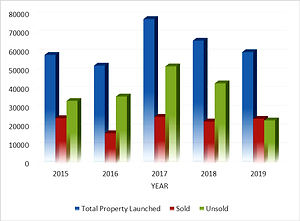Current issue
Online first
Archive
About the Journal
Aims and scope
Editorial Board
International Editorial Board
List of Reviewers
Abstracting and indexing
Ethical standards and procedures
REMV in Social Media
Contact
Instructions for Authors
Instructions for Authors
Manuscript formatting template
Title page
Highlights
Payments
‘Ghostwriting’ and ‘Guestauthorship’
Guidelines for Referees
Prospecting Housing Bubbles in Malaysia
1
Universiti Teknologi Malaysia, Malaysia
Submission date: 2022-03-24
Final revision date: 2022-06-23
Acceptance date: 2022-07-08
Publication date: 2022-12-09
REMV; 2022;30(4):74-88
HIGHLIGHTS
- aim to assess Malaysia's house price bubbles condition
- this paper use empirical method which is Markov Switching Model
- the study revealed Malaysia housing market experience stable house price
KEYWORDS
TOPICS
ABSTRACT
There have been extensive studies pertaining on bubble detection in literature, though very few investigate the Malaysian residential property market. The inflated housing market, however, has sparked widespread public anxiety and there has been a proliferation of comments and forecasts about the presence of housing bubbles in Malaysia throughout the last decade. The purpose of this paper is to assess the housing bubbles in Malaysia by using empirical models in detecting Malaysian residential property bubbles. This research employed the Markov Switching (MS) model to investigate the housing bubbles for the Malaysian residential property market. The findings revealed Malaysian housing prices to be relatively stable over the period 2010 to 2019, with states of upheaval occurring only during short-lived periods. Overall, Malaysian housing prices were generally steady between 2010 and 2019, albeit this has shifted slowly in recent years as economic turmoil faded. This study provides empirical results to explain the situation of Malaysian house prices in the recent years.
We process personal data collected when visiting the website. The function of obtaining information about users and their behavior is carried out by voluntarily entered information in forms and saving cookies in end devices. Data, including cookies, are used to provide services, improve the user experience and to analyze the traffic in accordance with the Privacy policy. Data are also collected and processed by Google Analytics tool (more).
You can change cookies settings in your browser. Restricted use of cookies in the browser configuration may affect some functionalities of the website.
You can change cookies settings in your browser. Restricted use of cookies in the browser configuration may affect some functionalities of the website.




